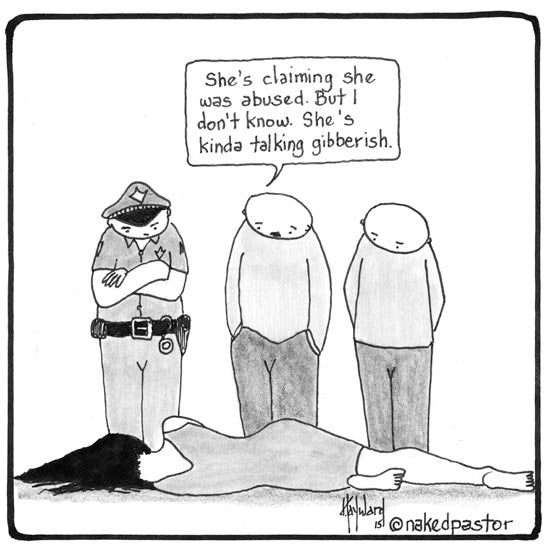When an abused person finds the courage to take the risk to tell their story of abuse, often the story is so overwhelming, bewildering, and unbelievable, that their story is not believed.
People leap to the conclusion they are exaggerating their story.
Maybe to evoke sympathy.
Maybe to exact revenge upon the perpetrator.
Maybe because they've forgotten the details.
All kinds of reasons.
All in an attempt to, often, silence the abuser and protect the protaganist.
Here's an interesting quote:
"A dispassionate conceptual development of the typology of violence must by definition ignore its traumatic impact. Yet there is a sense in which a cold analysis of violence somehow reproduces and participates in its horror. A distinction needs to be made, as well, between (factual) truth and truthfulness: what renders a report of a raped woman (or any other narrative of a trauma) truthful is its very factual unreliability, its confusion, its inconsistency. If the victim were able to report on her painful and humiliating experience in a clear manner, with all the data arranged in a consistent order, this very quality would make us suspicious of its truth." (
When people share with me their stories of abuse, I believe them.
Do you?


